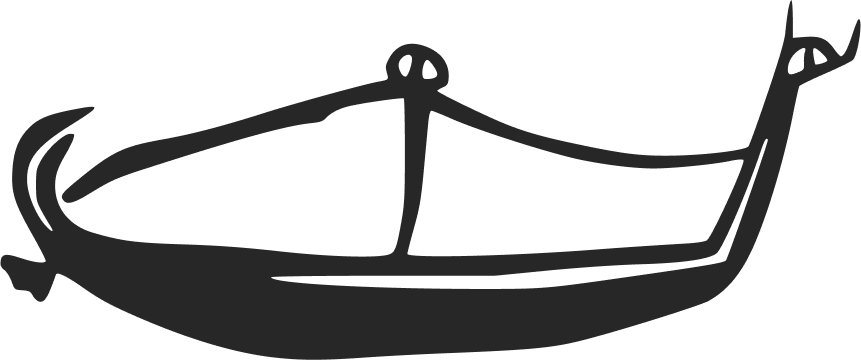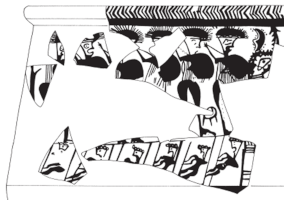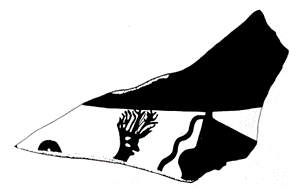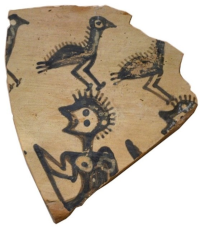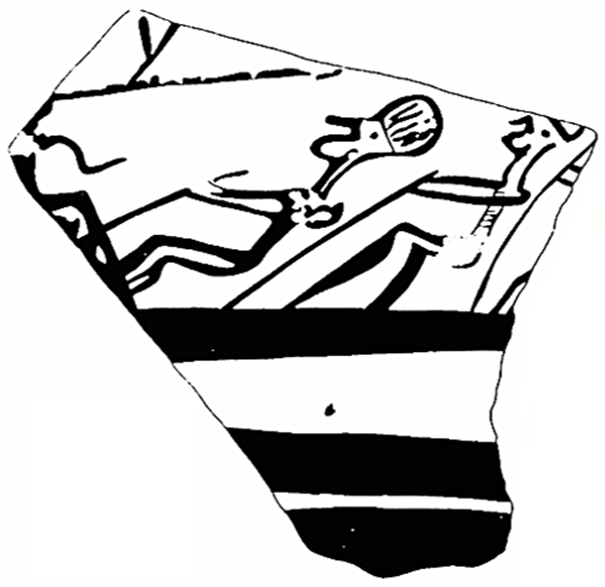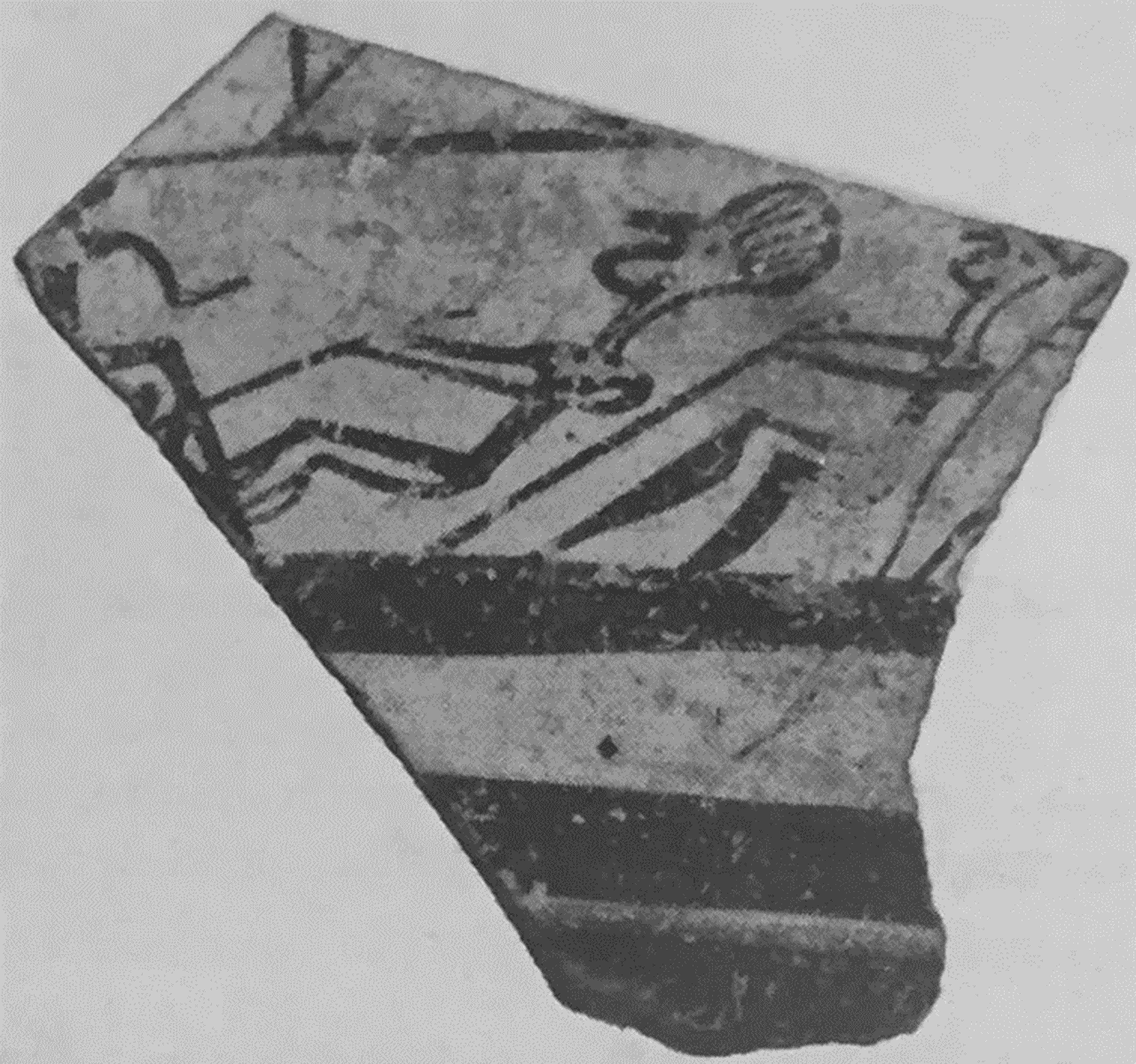Fragment of a ship with two rowers straining at their oars and facing left, with lower arms and left leg of a third rower visible. The oars do not project beyond the keel. The hull is depicted by a single thick horizontal band. To the left is an angular structure comprised of a vertical line rising and a compound curve. Above the rowers, thin lines (possibly deck) and a "Y" shaped device. The two horizontal lines below the hull are decorative as they encircle the jar.
Ship with two rowers
A106
LH IIIC
Seraglio, Kos
L: 8.5 cm; W: 8.5 cm; thickness: 0.8 cm
Lower wall fragment of krater. Finely tempered brick-red clay, yellowish slip, matt red paint
Basch 1978: 146-47, no. 310; Morricone 1972-73: 358-359, 361; Thomatos 2006: 95-96, figs. 1.297, 1.299; Vermeule and Karageorghis 1982:XII.33; Wachsmann 1981: 200;1998: 141-42, fig. 7.26a-b; Wedde 2000: 326, no. 650, 654
The figures are interpreted as wearing feathered helmets such as those worn by the Sea People depicted at Medinet Habu.
Basch, L. 1978. “Le Navire mns et autre notes de voyage en Egypte,” MM 64: 99-123.
Morricone, L. 1972-1973. “Coo – scavi e scoperte nel ‘Serraglio’ e in località minori (1935-1943),” Annuario 50-51: 139-396.
Thomatos, M. 2006. The Final revival of the Aegean Bronze Age: a case study of the Argolid, Corinthia, Attica, Euboea, the Cyclades and the Dodecanese during LH IIIC Middle. Oxford: Archaeopress.
Vermeule, E. and V. Karageorghis. 1982. Mycenaean Pictorial Vase Painting. Cambridge, Mass.: Harvard University Press.
Wachsmann, S. 1981. “The Ships of the Sea People,” IJNA 10: 187-220.
―――. 1998. Seagoing Ships & Seamanship in the Bronze Age Levant. College Station, TX: Texas A&M University Press.
Wedde, M. 2000. Towards a Hermeneutics of Aegean Bronze Age Ship Imagery. Peleus Studien zur Archäologie und Geschichte Griechenlands und Zyperns, vol. 6. Bibliopolis: Mannheim and Möhnsee.
